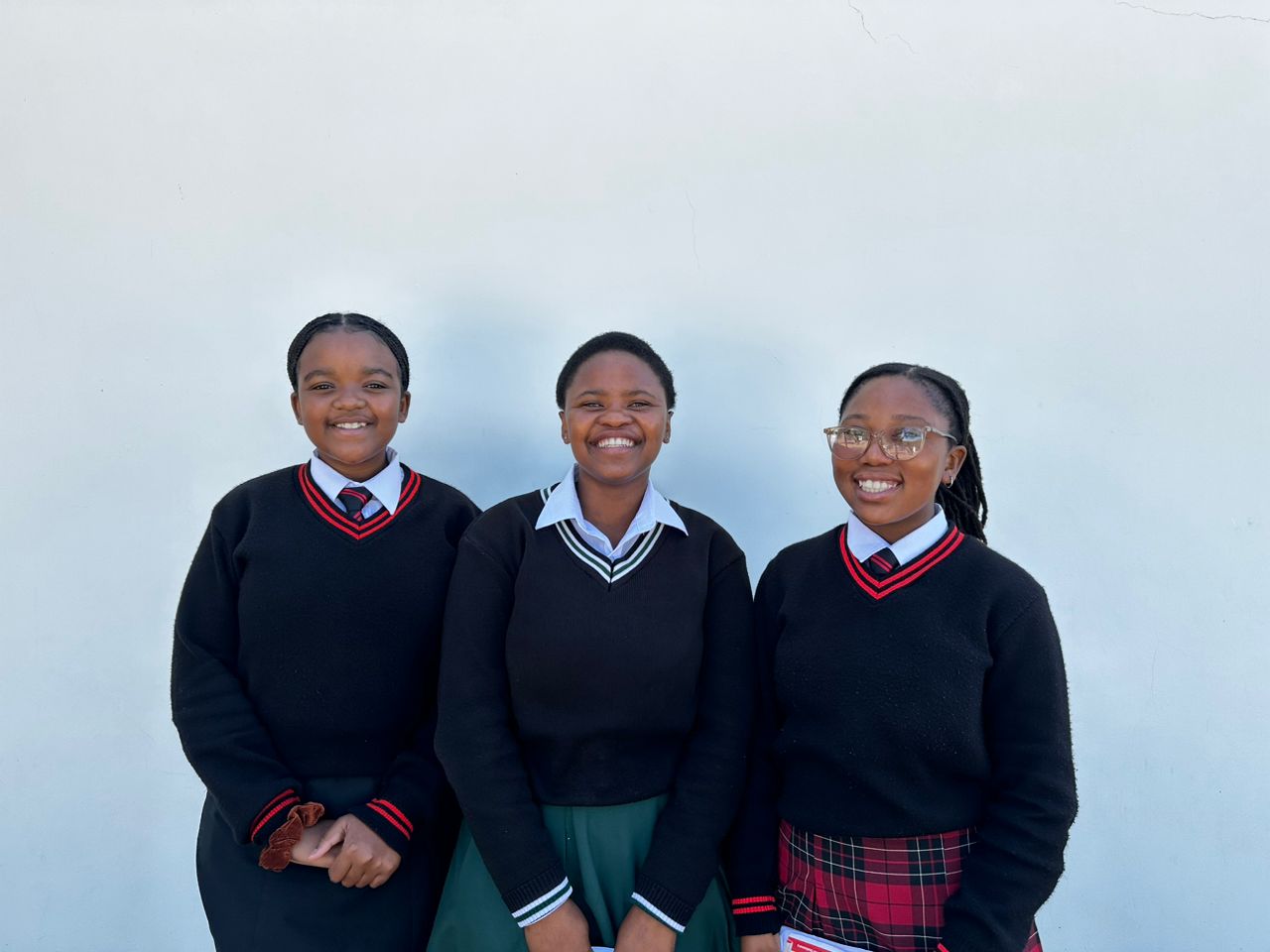By TOKOLOGO LEKOMA AND ELAINE J WABWIRE
On Tuesday, the 21st of February, the Amazwi South African Museum of Literature celebrated International Mother Language Day by hosting its annual Amazwi-Puku storytelling festival. Swarming with local high schoolers and educators, the festival emphasized the importance of local languages in children’s literature and highlighted the significance of promoting linguistic diversity in education.
“Khululani iibahtyi, namkelekile. Kusekhaya” translates to “Take off your jackets; you are welcome. This is your home.” This warm welcome by poet Akhona Bhodl’ingqaka urged audience members to revel in the festivities. The open embrace seemingly melted some of the nervous jitters from the learners who came from seven schools around Makhanda. These schools include Nombulelo Secondary School, Kutliso Daniels Secondary School, T.E.M Mrwetyana Secondary School, Ntsika Junior Secondary School, Hoerskool P.J. Olivier, DSG, and St. Andrews College.
Two of the schools, Nombulelo Secondary School and Nathaniel Nyaluza Senior Secondary School dazzled with their poetic delivery and pitch-perfect harmonies. The students were able to see themselves as intellectuals, academics, and writers rather than passive consumers of literature. “It is important to host the festival at Amazwi because people need to return to their roots,” said Azabenathi Pandliwe from Ntsika Senior Secondary School. Nwabisa Mlalandle from Mrwetyana Secondary School added, “I enjoy knowing where a story originates and tapping into a writer’s vision.”
Phumelele Lavisa, a literary legend of the day, motivated students to aspire to greatness and believe in their intellectual capabilities. Lavisa spoke on the importance of African languages. “The writers we study have used the power of emotion in language and experiences to shape their work. [This is the] same feeling we use to study their work decades later,” he said.
The festival also featured guest speaker Reverend Phindile Baxana, who emphasized the crucial role of technology in advancing multilingual education and supporting the development of quality teaching for all. While inviting everyone to speak their mother tongue, Rev Baxana reminded the crowd about the importance of sign language and Braille for the visually impared in South African literature. He added that we should push for more literature written for disabled bodies to appear on national bookshelves and in museums like Amazwi.
Zongezile Matshoba, the Education and Public Programmes Manager at Amazwi, spoke about the opportunity to work directly with schools in Makhanda to further the mandate of the day. “It is the museum’s responsibility to help marginalised people engage with these preserved works because it gives their mother tongue a platform,” said Matshoba.
The festival celebrated culture, identity, and potential greatness. That is why it is essential for institutions to do more to preserve the works of literary giants for coming generations. The idea of embracing one’s authentic self through their mother tongue is what continues to make such an event special.


